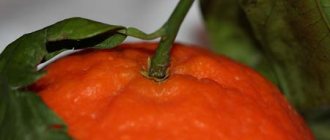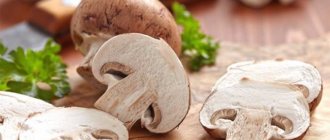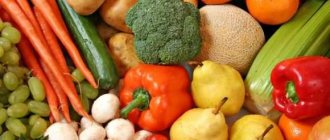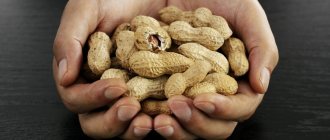The benefits of cheese
The benefits of cheese for humans have been known since ancient times. This product is made from cow or goat milk with the addition of various enzymes, spices and herbs. The taste and quality of the finished cheese depend on the characteristics of its preparation. Different types of cheese can differ so greatly from each other that it is sometimes quite difficult to classify them as the same product. What is the benefit of cheese and why do pregnant women love it so much?
- Fact #1
: Cheese is rich in calcium. This amazing product affects the condition of bone and dental tissue, and also participates in many metabolic processes occurring in the body. A certain amount of calcium is necessary for normal fetal development, especially in early pregnancy. - Fact No. 2
: cheese is rich in B vitamins. These nutrients activate metabolism, increase performance, improve memory and attention. In addition, B vitamins are involved in tissue respiration and promote fetal growth. - Fact #3
: Cheese increases your appetite. For many pregnant women, a piece of cheese every morning helps cope with the onset of nausea and reduce the manifestations of toxicosis. - Fact #4
: Cheese improves the condition of your skin, hair and nails. The vitamins and mineral elements contained in any cheese make a pregnant woman very attractive. - Fact #5
: Cheese is an excellent antioxidant. The substances that make up cheeses protect the body's cells from destruction and premature aging.
Some types of cheese have completely unique beneficial properties. The cheese made from yak milk, which is made in the Himalayas, deserves special attention. This product is rich in folic acid, an essential vitamin that affects fetal development. Consumption of folic acid from the earliest stages of pregnancy prevents the occurrence of fetal malformations (in particular, neural tube defects).
Tofu cheese is of particular interest. By and large, this is not cheese, but a soy dietary product. Tofu contains a large amount of iron, which is very important for pregnant women. Regular consumption of tofu cheese is an excellent prevention of anemia and all complications associated with a lack of iron in the body of the expectant mother.
Tofu for pregnant women
Tofu can hardly be called cheese in the usual sense of the term, because it is made from crushed soybeans, and not from milk. However, this factor is the key to the usefulness of this product for pregnant women.
Soy cheese contains complete protein, high amounts of calcium and iron, which reduces the risk of premature birth. Tofu reduces cholesterol, has antioxidant properties, maintains necessary lipid levels, and also contains probiotics that regulate digestion.
Tofu has side effects. It should definitely not be consumed by pregnant women who have an allergic reaction to soy. You need to eat cheese in moderation so as not to exceed the permissible level of aluminum in the body. And trypsin inhibitors contained in tofu can cause pancreatitis in pregnant women.
Harm of cheese
Cheese could be an ideal product in the diet of a pregnant woman if it did not pose a threat to the baby in her womb. Some types of cheese can be very dangerous to the health of the fetus. We are talking about many soft cheeses, as well as those varieties that are produced with the participation of mold. It is in them that Listeria, dangerous pathogens, live and multiply. What are the risks of infection for the expectant mother?
Listeria is a special bacteria found in milk. During the preparation of some types of cheese, listeria does not die. Penetrating into a woman’s body, infectious agents enter the placenta through the bloodstream and from there settle in the internal organs of the baby. Listeriosis develops - a dangerous disease that threatens serious problems during pregnancy.
In the first trimester, Listeria infection can trigger the formation of congenital malformations. In later stages, listeriosis can cause the development of meningitis in a baby. At any time, the disease can provoke miscarriage or fetal death as a result of sepsis. It is possible for a child to become infected with listeria during the passage of the birth canal.
Some categories of pregnant women should not indulge in hard varieties of cheese. We are talking about expectant mothers suffering from excess weight, stomach diseases and urolithiasis. Cheese should be consumed with caution if you have gestosis and hypertension. In some cases, it makes sense to consult with your doctor about the possibility of including cheese in your diet.
What kind of cheese can you eat during pregnancy?
Expectant mothers should give preference to hard cheeses. It can be Russian, Dutch, Gouda, Maasdam, Poshekhonsky, Edam or other common varieties. These cheeses contain virtually no listeria, which means that hard varieties can be considered quite safe for health. It is best to eat cheeses made from pasteurized milk.
You should be very careful with soft cheeses during pregnancy. You should avoid blue cheeses (Brie, Cambozola, Taleggio, Chomez, Roquefort). There is great debate about the dangers of varieties such as Feta, Mozzarella and Philadelphia. Expectant mothers should not get too carried away with such cheeses and consume them no more than once a week.
During pregnancy, it is not recommended to eat sausage and processed cheese. A large number of different additives and impurities make these cheeses very dangerous for the health of a woman and her baby. In addition, processed cheese contains a large amount of fat and cholesterol, which also adversely affects the development of the fetus.
Pickled cheeses should also be consumed with great caution and no more than once a week. Women suffering from diseases of the digestive tract should avoid pickled varieties. Even a single use of this product can provoke an exacerbation of gastritis or colitis during pregnancy.
Why is blue cheese contraindicated for pregnant women? (4 photos)
What is the danger of blue cheese for mother and child?
It’s really better for pregnant women to forget about such a delicacy as blue cheese at least until childbirth.
And this is not an unfounded statement. This product can indeed be dangerous, not because of the mold, but because of the possible presence of listeria bacteria. It lives in soil, water, grass. When consuming the latter, animals can become infected, and through dairy products they can infect humans. The list of potentially dangerous products includes lightly cooked meat, insufficiently washed fruits, unpasteurized or mildly pasteurized cheeses.
There have been cases where this rod-shaped bacterium was found in ice cream and butter. Children, the elderly, people with weakened immune systems, and women expecting to give birth are more likely to become infected. This is why pregnant women should not eat blue cheese: consuming such a product carries too high a risk of contracting listeria.
Manifestations of listeriosis
A disease such as listeriosis, which often disguises itself as a regular sore throat and can be asymptomatic, can cause fetal death, provoke miscarriage and cause other complications, in particular, problems with the child’s central nervous system. At the slightest suspicion, you must immediately notify the doctor managing the pregnancy and get tested. If the pathogen is detected at an early stage and treated in a timely manner, the prognosis is the most favorable for both the woman and the baby.
What types of cheese can pregnant women eat?
Expectant mothers not only can, but also need to eat cheese, since this product is rich in calcium and protein. You can safely include hard ones in your diet (cheddar, parmesan, halloumi and others), as well as prepare dishes using soft varieties - mascarpone, mozzarella, cream cheese. But you should forget about Brie, Camembert, Cambozole, Roquefort, and soft varieties made from goat and sheep milk at least until the end of pregnancy.
It is advisable for expectant mothers to give preference to hard varieties, purchase only pasteurized products and strictly follow the rules and shelf life. All stale stock must be disposed of immediately.
Cheese can be eaten not only in the form of banal sandwiches, but also added to baked goods, spaghetti, omelets, and pizza. Durum varieties go well with ham, tomatoes, eggplants, herbs, olives, and berries. In addition to cheese, expectant mothers should definitely include other dairy products in their diet - cottage cheese, sour cream, yogurt, ayran. They have a beneficial effect on the intestines, improve digestion and compensate for the lack of important microelements and vitamins.
Method of use
It is better to eat any cheese fresh during pregnancy.
. It has been noticed that the maximum taste of any cheese is revealed when cutting it into cubes, and not into thin slices. A sandwich made from a thin piece of bread and cheese would be ideal for breakfast. You can add butter or jam and fully enjoy a good start to the day.
Hard cheese can be an excellent addition to any hot dish. The combination of cheese and spaghetti will be especially beneficial. Various meat and vegetable sauces will perfectly complement the dish and will be an excellent choice for lunch or dinner for the expectant mother.
Pregnant women can safely enjoy fondue or any other dish where cheese is melted
. Don't forget about everyone's favorite pizza, as well as hot sandwiches with cheese as a base. Cheese fits perfectly into many casseroles, salads and desserts.
During pregnancy, special attention should be paid to storing cheese at home. It is worth remembering that failure to comply with all technologies can cause serious food poisoning. If you have doubts about the quality of cheese, it is better to refuse to eat it than to risk your own health. Food poisoning during pregnancy can negatively affect the condition of the fetus and even cause miscarriage.
Cheese is a tasty and healthy product that most expectant mothers will enjoy. Reasonable consumption of cheese during pregnancy will not harm the fetus at all. It is only important to follow simple precautions and eat only safe varieties of cheese. If you have any doubts, you can consult a nutritionist.
It's no secret that during pregnancy a woman needs to consume enough calcium. And cheese is one of the richest sources of this useful trace element. The only thing is that doctors’ opinions regarding the use of cheese during pregnancy are divided. Some say that cheese is harmful during pregnancy, and it is better not to touch it at all. Others believe that cheese is an absolutely appropriate food to eat during pregnancy. Let's figure it out: does cheese benefit or harm during pregnancy?
Why can cheese be harmful during pregnancy?
It is not surprising that during pregnancy, the expectant mother seeks to protect herself from any bacteria and viruses that could have a negative impact on her health and the health of her baby. Meanwhile, some types of products may contain the bacterium Listeria monocyotogenes, which can cause a dangerous infection - listeriosis.
This bacteria can be found in unpasteurized milk, seafood, poultry and some soft cheeses (especially blue cheeses).
Signs of contracting such an infection: chills, nausea or vomiting, muscle pain, fever. The incubation period of the disease ranges from several days to several weeks.
If you become infected with such an infection during pregnancy, it can lead to premature birth, the development of sepsis, pneumonia or meningitis in the baby. In this regard, soft cheese during pregnancy
It's really better not to use it. As a last resort, you can eat heat-treated dishes with these types of cheeses - the heat treatment kills listeria.
What kind of cheese can you eat during pregnancy?
However, there are cheeses that can be consumed during pregnancy. These are any hard cheeses: Russian, Gouda, Poshekhonsky, Parmesan, Emmental, Maasdam, etc. Hard cheeses do not have favorable conditions for the growth of bacteria, so they are absolutely safe in this regard.
For lovers of soft cheese during pregnancy
there are also concessions. For example, feta cheese, cottage cheese, pasteurized goat cheese without rind, Philadelphia cheese, processed cheeses, mascarpone cheese and some others can be eaten during pregnancy. Such cheeses, as a rule, are processed using special technologies, so they do not pose a threat to the health of the expectant mother and child.
What kind of cheese should you not eat during pregnancy?
During pregnancy, you should not eat cheeses that contain a large amount of water and little acid. This environment is the most favorable for the growth of Listeria monocyotogenes bacteria, which pose a danger to the health of mother and baby.
These cheeses include soft cheeses with mold: Camembert, goat cheese with a white rind, Dor Blue, Brie, Cambonzola, Taleggio, etc. In addition, blue cheese is contraindicated during pregnancy: Roquefort, Stilton, Savoy cheese, Gorgonzola, Danablu , Shropshire Blue, etc.
Soft, unpasteurized cheeses are also a fertile environment for the growth of bacteria - therefore, such cheese during pregnancy
contraindicated. Basically, these are soft, unpasteurized goat and sheep cheeses: Shabishu, Torta del Cesar, Pyramid.
Dishes with cheese for pregnant women
We invite you to try several dishes prepared according to the needs of pregnant women. These dishes contain your favorite feta cheese, as well as products containing substances beneficial for expectant mothers.
Layered cake
Ingredients:
- puff pastry – 300 g; fresh or frozen spinach – 1 kg; eggs – 2 pcs.; onion – 1 pc.; feta cheese – 225 g; nutmeg; olive oil.
Preparation:
Wash the spinach and boil until tender. Then cut. Chop the onion and cut the feta cheese into slices. Mix all these ingredients in a separate bowl. Beat the eggs and add to the spinach with cheese and onion, mix again. Grated nutmeg and black pepper are added as desired.
Next, take the puff pastry and brush each sheet with olive oil. Place in a baking dish and spread the filling onto the dough. Fold the edges of the dough inward and place another sheet of dough on top. Grease the top of the pie with oil again and bake in an oven preheated to 190 degrees. Cooking time usually takes 35-40 minutes.
Spanish omelette
Ingredients:
- Potatoes – 1 pc. Bell pepper (red) – 1 pc. Onion – 1 pc. Cheese (cheddar) – 50 g. Eggs – 4 pcs. Olive oil
Preparation:
Peel the potatoes and boil until tender. Cool and then cut into cubes. Sauté the onion in a frying pan. Chop the red pepper and fry for a few minutes along with the onion. Add potatoes to the mixture and stir gently. Beat the eggs in a separate bowl, pour in a little water and season to taste with salt or pepper. Pour the beaten eggs into the frying pan on top of the vegetables, cover with a lid and cook over low heat. Grate the fedder cheese and sprinkle it on the omelette a few minutes before it’s ready. Cover again and wait until the cheese melts a little.
Bon appetit! Choose the right recipes, and even during pregnancy your lunch will be both healthy and tasty.
Despite the fact that not every cheese can be eaten during pregnancy, eating this product is safe. In particular, according to Japanese scientists, eating cheese during pregnancy by the expectant mother reduces the risk of dental caries in children. So eat cheese during pregnancy, but choose it wisely!
Why is unpasteurized milk dangerous? Researchers have repeatedly detected pathogenic bacteria, including salmonella, in fresh milk. Salmonellosis in pregnant women manifests itself in the same way as in other patients: it causes headache, nausea, abdominal pain, fever and vomiting. In addition, it can affect the baby's development. Today, pasteurization is the best way to protect milk and dairy products.
Sausages
During pregnancy, you should temporarily forget about sausages and industrially produced sausages. The fact is that real sausages made from high-quality raw materials are quite difficult to find. At best, store-bought sausage contains only 30% meat. The rest is soy and various additives that enhance the taste. One of the most harmful additives for the fetus is monosodium glutamate (it increases blood pressure). Also, sausage often contains carmine, which causes allergic reactions. Phosphates are often found in sausages, the presence of which in the body leads to calcium deficiency, and this is one of the vital elements for the fetus. Even if you consider the sausage of a certain manufacturer to be of high quality and tasty, it is best to refrain from eating it.
Cheese made from unpasteurized milk
Cheeses such as Camembert, Brie, Port Salut, Crescenza, Gorgonzola and some Swiss cheeses are produced without pasteurization of milk (for example, the famous Emmental is prepared by mixing raw and pasteurized milk). During pregnancy, you should temporarily avoid these types of cheeses. Also, you should not buy cheese made at home or on private farms that do not have their own laboratory to control product quality.
Eggs, raw and soft-boiled
Eggs are very useful during pregnancy, because they are rich in vitamins, iron, phosphorus, copper, calcium, and cobalt. Eggs also contain choline, which is responsible for the mental development of the unborn child.
However, eggs during pregnancy can only be eaten if they are hard-boiled. If you are making scrambled eggs, the white and yolk should be completely coagulated. Raw eggs pose a danger during pregnancy - you can become infected with a disease such as salmonella. Note that raw eggs are sometimes used to make salad dressings (such as Caesar salad) and custards. Doctors recommend avoiding such foods for a while.
By-products
The diet of pregnant women should not contain by-products (these include liver, heart, stomachs, kidneys, etc.). Once upon a time, women were even recommended to eat spleen, arguing that it contains a lot of iron. However, even more of this element is contained in any red meat (beef, veal, etc.). Liver and some other offal may even contain increased amounts of vitamin A, which in excess is harmful to the fetus.
Fish with high levels of mercury
These species include all predatory fish (tuna, shark, swordfish, halibut, king mackerel). Their meat accumulates mercury and dioxins, which can disrupt the normal development of the nervous system of the unborn child. However, this in no way means that you need to give up fish. On the contrary, it should be included in the diet at least twice a week. It is better to give preference to sea fish, since it contains a large amount of polyunsaturated fatty acids of the omega-3 family, necessary for the development of the fetal brain. The most useful are salmon, chum salmon, trout, sardines, mackerel, herring, cod and whitefish.
Drinks with caffeine
Almost without exception, doctors agree that caffeine-containing drinks are harmful to the development of the unborn fetus. And we are talking not only about coffee, but also about strong tea, cocoa and chocolate.
But it turns out that abruptly avoiding caffeinated drinks in the first trimester of pregnancy can lead to hypotension and impaired blood flow in the blood vessels of the placenta. Allow yourself a small cup of weak coffee with milk or cocoa. Remove these drinks from your diet gradually. This still needs to be done, because caffeine washes calcium from the bones, removes iron, magnesium and other elements necessary for mother and baby from the body, increases blood pressure and creates additional stress on the heart. Drink chicory instead of coffee and strong tea - this drink is not only harmless, but also improves intestinal function. Chocolate can be replaced with dried fruits.
A strong need for a piece of hard cheese may be associated with the body’s desire to diversify its diet. In addition, cravings for a product often indicate a lack of protein and calcium, which are included in its composition. There is another theory, but it still has no scientific evidence. According to her, when a woman eats cheese during pregnancy, it means she will give birth to a boy.
Making cheese at home
To make cheese you will need the following products:
- 4.5 liters of cow or goat milk;
- 0.3 l of water;
- 1/2 tsp. citric acid;
- a small amount of rennet (on the tip of the knife).
Important!
To prepare the product, you should not use pasteurized milk. You need to have a special thermometer on hand to measure the temperature of milk. It is recommended to cook cheese in a small saucepan made of enamel.
The sequence of actions is as follows:
- Citric acid should be diluted in 0.2 liters of cool water, and rennet in 0.1 liters of liquid.
- Then the milk is poured into a saucepan and pre-diluted citric acid is added.
- The mixture is heated to 33 degrees. If the milk does not curdle, it must be heated to 36 degrees.
- Then remove the pan from the stove and slowly pour in the liquid containing rennet, stirring the milk constantly.
- Cover the pan with a lid.
- After five minutes you need to check its contents. If whey and small pieces of a curd-like consistency are clearly visible in the pan, you can proceed to the next step.
- You need to make several small vertical and horizontal cuts on the curd, with the blade of the knife touching the bottom of the pan.
- After this, the container is placed on the stove again. Its contents will be carefully stirred so as not to destroy the resulting cheese cubes.
- Once the mixture reaches a temperature of 41 ° C, remove the pan from the heat.
- Then the cheese is separated from the whey using a slotted spoon, which is covered with several layers of gauze.
- The resulting clots are placed in a microwave-safe bowl. They need to be heated for 30 seconds. While the cheese is heating, you need to put on gloves.
- Then the temperature of the product is checked using a thermometer: it must be at least 60 °C.
- The resulting mass begins to be carefully stretched, and several neat mozzarella balls are formed from it.
- After this, salt is poured into the whey. Place mozzarella balls into the resulting solution.
The remaining whey can be used to make tender buns. It will give the baked goods airiness and special lightness.
This question may seem strange to some, but in reality, with cheese during pregnancy, not everything is so simple. Let's find out from this article whether pregnant women can have cheese and what kind?
Of course, cheese is one of the main sources of calcium for pregnant women, one of the main elements that is extremely important for building the bones and tissues of the unborn child. But some popular and delicious varieties of cheese are not recommended for pregnant women to consume, as they may contain substances and bacteria that are dangerous to the unborn baby.
What cheese should pregnant women not eat?
Camembert and Brie varieties are soft varieties of cheese with mold, varieties containing blue mold are Roquefort, Dor Blue, Stilton, Danablo, Sheep cheese, Goat cheese.
The fact is that these types of cheeses are produced using a special technology that allows them to retain more water, while they contain significantly less acid. This technology was specially selected to allow mold fungi to multiply in cheese, but on the other hand, it also creates wonderful conditions for bacteria to multiply in cheese. In particular, the causative agents of listeriosis.
If cheeses of these varieties are subjected to heat treatment, then the bacteria that cause listeriosis or other similar diseases are killed, so if a hot dish or baked goods containing one of these cheeses is served on the table, you can taste it without fear of anything.
A healthy adult can absolutely safely consume these types of cheeses and enjoy their delicate, unusual taste, since even if he gets sick with listeriosis, this disease will only resemble a mild form of the flu, or will go unnoticed. But pregnant women are completely different. Their immune defenses are significantly weakened and therefore they are at greater risk of becoming infected, and their disease is much more severe.
Why can't pregnant women eat cheese?
Listeriosis, a disease caused by special bacteria, is quite rare, and no more than 100 cases are recorded in Russia every year. In adults, the disease is almost asymptomatic, with headache, decreased appetite, general weakness, and swollen lymph nodes.
You may not even realize that this insidious disease has settled in your body. It may take 3-4 weeks from the moment of infection until the first signs appear. It is clear that in this case it is quite difficult to determine the root cause of the disease.
If a pregnant woman becomes ill with listeriosis, especially in the second half of pregnancy, this can lead to the most unpleasant consequences, including miscarriage or a stillborn child.
However, intrauterine infection of the fetus can also occur. In this case, the child is born apparently healthy, but after some time he develops serious illnesses, for example, meningitis, jaundice or pneumonia.
Of course, there are quite a lot of cheeses approved for consumption during pregnancy.
What to do if you want cheese during pregnancy?
We can say that pregnant women can eat almost all types of cheese, except for those mentioned just above, namely:
Hard cheeses, without limitation:
- Maasdam,
- Dutch,
- Gouda,
- Russian,
- Kostroma,
- Soviet,
- Poshekhonsky,
- Knight,
- Bukovinsky,
- Cheddar,
- Emmental.
Soft and processed cheeses:
- Mozzarella,
- Moscarpone,
- Philadelphia,
- Feta,
- Boursin,
- Ricotta,
- Quark,
- Any processed cheeses.
And, of course, pregnant women can safely consume not only cheese, but also any fermented milk products, yogurt, sour cream, cottage cheese.
Cheese is a delicious, high-calorie product that is so loved by many pregnant women. The variety of varieties makes cheese one of the most desirable products on the table both on weekdays and on holidays. Can expectant mothers eat cheese? What types of cheese should be preferred during pregnancy?
What types of cheese can pregnant women eat?
If you are expecting a baby, you can safely include hard cheeses (cheddar, emmental, halloumi, manchego, pecorino, parmesan, etc.) in the menu. They are prepared from pasteurized milk, which means the content of listeria in the product is minimal.
Soft cheese lovers can also breathe a sigh of relief because it is safe to eat ricotta, mozzarella, cream cheese and mascarpone during pregnancy. With such a variety, you will pamper yourself and your baby with delicious and original dishes every day.
What cheese should expectant mothers not eat?
For at least 9 months you will have to forget about blue cheeses, which contain a huge amount of Listeria bacteria (Brie, Camembert, Cambozola, etc.). Soft types of unpasteurized cheeses, such as feta and shabishu, are also prohibited.
Why is it dangerous to eat these types of cheeses? The main reason is listeriosis, which can cause premature birth or miscarriage. At the initial stage, the disease has typical symptoms of a cold or flu, but over time the child may get worse. That is why if there is a sudden change in your health, you should immediately seek medical help.
Rules for safe consumption of cheeses during pregnancy:
- Give preference exclusively to hard varieties of cheese.
- If you cannot overcome your craving for soft cheeses, you can eat a small amount by pre-heating the cheese in a water bath. After all, as you know, at high temperatures listeria bacteria die.
- Buy only pasteurized dairy products.
- Follow the rules for storing food in the refrigerator. Inspect regularly and get rid of low-quality or stale food products.
The diet of pregnant women differs from the usual diet with a richer composition. For her own menu, a woman chooses exclusively healthy products high in minerals and all kinds of vitamins. In this regard, cheese looks quite attractive. This lactic acid product not only has excellent taste characteristics, it also contains a lot of healthy components.
Noble cheeses contain such an important substance as melanin. This component reliably protects the skin. The assortment of cheese products presented on the shelves of modern stores will impress any buyer. Therefore, the expectant mother can freely choose a worthy product for her table. But here the question arises about what cheeses a woman can supplement her menu with. After all, each variety has its own characteristics. This issue is especially relevant for women who are fans of blue cheese. It is this extraordinary product that we will talk about.
Mold foods and pregnancy
Humanity knows several hundred species of molds. As with their forest counterparts, this group contains useful, used for good, and very dangerous, poisonous species.
You encounter mold quite often: a delicate fluff on jam and fresh fruit, a green spot on bread, a white film on pickles. The question always arises: what to do with these products? There can be only one answer: if the food is of dubious quality, pregnant women should not eat it under any circumstances.
To protect your health, when purchasing food products, it is recommended to check expiration dates, carefully inspect the product if it is packaged in transparent packaging, do not purchase stale, spoiled or trimmed fruits and vegetables, and avoid sliced bread packaged in plastic. Savings cannot justify the risk of harming the health of the expectant mother and baby.
Production Features
Cheese production technology involves the use of special bacteria that activate the fermentation process in milk. Moreover, during production, some types of cheese are pasteurized, while others are not subjected to such processing. This point should always be taken into account when choosing products. In addition, the industry produces different types of cheeses: hard and soft, processed and curd. Each product name has its own quality features. When purchasing, be sure to study the information on the packaging. As a rule, the manufacturer always indicates the following data: fat content, calorie content, presence of preservatives and other additives. For a pregnant woman’s diet, the best option is dietary varieties of cheese.
Beneficial features
Now let’s look at the nutritional value and beneficial qualities of cheese. There are a lot of them, so we list the main advantages of the product:
- All cheeses have a high calcium content. This microelement is responsible for the formation of the baby’s bone skeleton, and helps the mother maintain healthy teeth and avoid such a serious problem as osteoporosis.
- Retinol, better known as vitamin A, is an extremely important element for the full development of the fetus.
- Vitamin “E”, also known as tocopherol, prevents the threat of miscarriage.
- The amino acid tryptophan, which is also present in high-quality cheese, stimulates the production of serotonin, which is responsible for the state of the emotional background. In scientific circles, this element is usually called the “happiness hormone” because it helps cope with depression and improves mood.
- Iron also takes part in many important processes occurring in the human body. It will help the expectant mother cope with anemia.
- Vitamin D is essential for the harmonious development of the fetus. Its deficiency in the mother’s body, and this is where the fetus gets strength for its development, negatively affects the condition of bone tissue. Deficiency of this vitamin is the root cause of the development of rickets in small children.
At first glance, it may seem that absolutely all cheeses are healthy for a pregnant woman. But in reality, the situation is not entirely clear-cut, because some types of cheese are strictly contraindicated for ladies in an “interesting situation.”
In the production process of certain types of cheese, fungal mold is used. Due to the participation of these microorganisms, the product acquires a specific taste, which is so appreciated by true gourmets. But it is precisely this specific feature that excludes the possibility of blue cheese appearing on a pregnant woman’s menu. Let us briefly explain the reasons for such restrictions:
- Blue cheeses contain a low content of lactic acid, which creates favorable conditions for the development of fungal flora.
- Once in the digestive tract, mold changes its microflora, which causes stool upset and other intestinal problems.
- Since antibiotics are obtained from mold, it can simply kill beneficial microflora, which also results in serious intestinal problems.
But the most important thing is that along with mold spores, listeria penetrates into the body - a bacterium that causes a serious disease that can negatively affect the development of the fetus.
Important!
Uncontrolled consumption of blue cheese by the expectant mother can lead to fetal regression or provoke premature birth.
Even during a normal pregnancy, infatuation with cheese with such an unusual additive can lead to meningitis in a newborn baby or pneumonia.
Harm of mozzarella and contraindications
Before using the product, you need to know not only the benefits, but also the possible harm of cheese. In addition to the positive properties caused by a large number of beneficial vitamins and microelements, it is worth familiarizing yourself with the contraindications. The use of a healthy product is not recommended in the following cases:
- celiac disease, since the product contains lactose in large quantities, which can cause diarrhea,
- chronic glomerulonephritis, ulcers, since it can cause severe complication or exacerbation of the disease,
- neurological disorders and obesity due to high fat content.
The health benefits of mozzarella significantly exceed the contraindications, but excessive consumption of the product or neglect of contraindications can lead to sharply negative consequences.
What cheese should I exclude?
To exclude any possibility of pathogenic microflora entering the placenta, the expectant mother should avoid the following varieties:
- blue cheese;
- exclude brie and soft varieties;
- sheep and goat milk products are also dangerous, since such cheeses are not pasteurized;
- processed and glazed cheeses are harmful;
- it is undesirable to use salted varieties, for example, “Sulguni”;
- Any smoked products are strictly prohibited for pregnant women.
Cheese is tasty and healthy. This is an undeniable advantage of the product. But the expectant mother, when compiling her personal grocery basket, should first of all think about the health of the baby, and not about her taste preferences.







